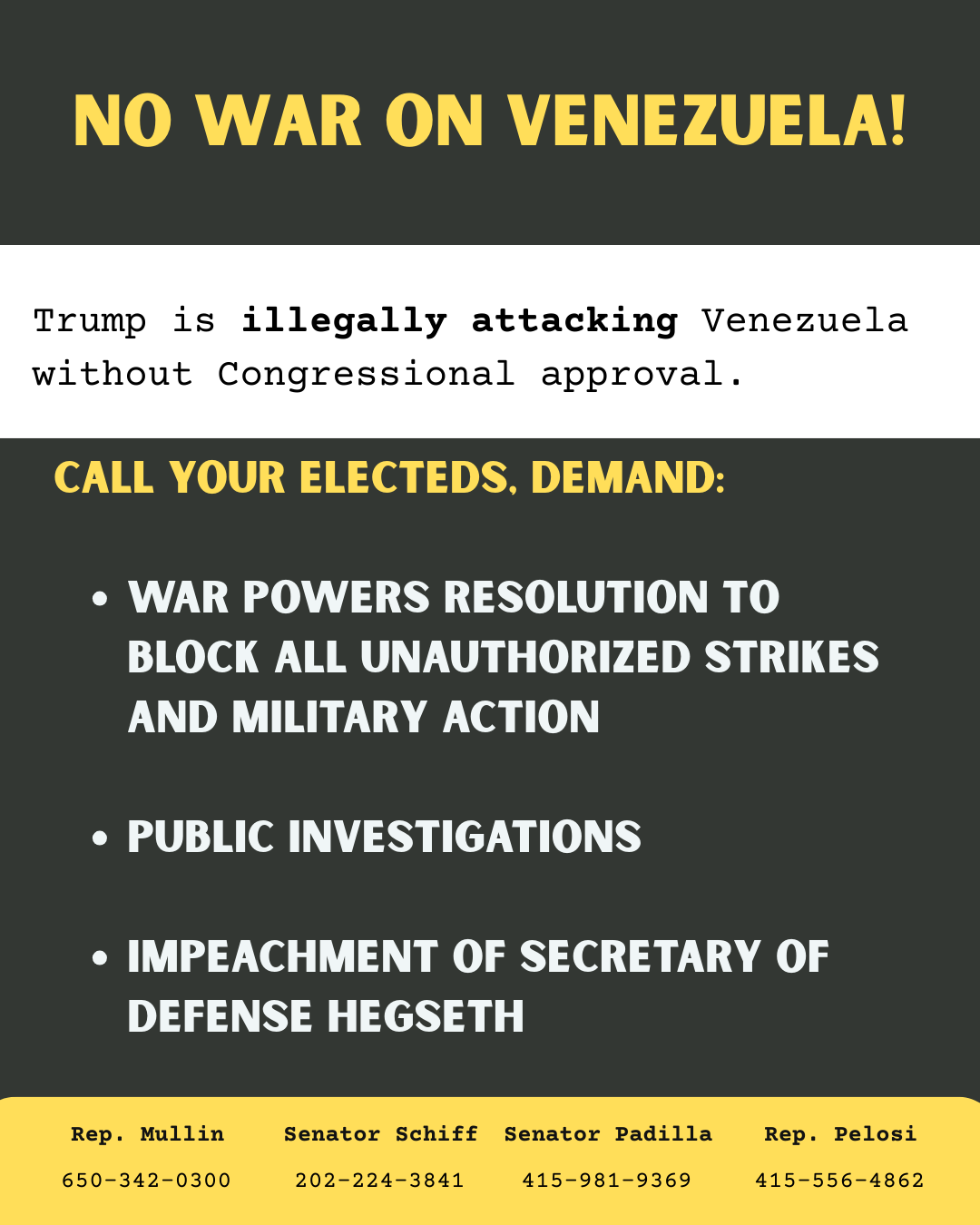Support the Medicare Negotiation and Competitive Licensing Act
Speaker Nancy Pelosi
SF Office: (415) 556-4862
DC Office: (202) 225-4965
Call the SF office first, but try the DC office if you can’t get through. If you get voicemail, hang up and try a few more times to talk to a real person. Don’t give up! Short direct messages are most effective. Hate the phone? Resistbot is your friend.
Call Script
Hi, my name is [your name] and I live in [your ZIP code] and I am a member of Indivisible SF.
I am calling to urge Speaker Pelosi to support and ensure that the House passes HR 1046 – the Medicare Negotiation and Competitive Licensing Act. This bill will give Medicare the power it needs to effectively negotiate with drug companies and bring drug prices down.
Rep. Lloyd Doggett’s (D-TX) HR 1046 has 120 co-sponsors as of March 9, 2019, including many freshmen representatives in red-to-blue districts who need to make good on their promise for REAL drug price reform, despite heavy opposition from the powerful pharmaceutical lobby. We do NOT want to cut a deal with Donald Trump that covers only a few drugs or that leaves patents off the table. That would be handing him a win for a bad bill that will probably die in the Senate anyway, while still putting vulnerable new reps in the cross hairs of Big Pharma. More than half the Democratic Caucus has co-sponsored this bill—pass HR 1046, and include competitive licensing in every drug pricing bill that moves forward.
Background
Prescription drug prices are substantially higher in the United States than in any other developed nation in the world. This is due, in large part, to the fact that the U. S. Government is the only developed nation in the world unable to fully leverage its position as the largest purchaser of prescription drugs in the country, when it negotiates with pharmaceutical providers, to make drugs more affordable for its patients.
HR 1046 is unlike any other drug price bill ever introduced in our country. Prior drug price bills (including the one Speaker Pelosi’s staff is currently “negotiating” with Trump’s Secretary of Health & Human Services, former Pharma CEO Alex Azar) offer Medicare no good option if a drug company refuses to negotiate in good faith and lower its prices - they can refuse to buy the drug, putting the health and lives of countless patients at risk, or they can give in to the blackmail and agree to the extortionate price the drug company demands. Either way, the patients lose.
HR 1046, on the other hand, will give the government the ability to revoke and re-issue a competitive license, a tool that every other wealthy nation in the world has at its disposal - and the reason why drug prices are so much lower in every other developed nation. What this means is that if a drug company refuses to negotiate in good faith and reduce the price of an important or life-sustaining drug, then the Dept. of HSS can revoke that company’s government-granted patent monopoly for the drug and re-issue the license to a generic producer that will offer a more competitive price. That price can be no higher than what the company charges in other developed nations for the same product.
By enabling the government to revoke the patent and license an affordable generic instead, HR 1046 forces Big Pharma to either cut a deal or lose the monopoly that enables price gouging in the first place. The drug company takes the hit, instead of the patients, who can now obtain the drug at a reasonable price they can afford. Either the drug company agrees to reduce the price to a reasonable and affordable level or the patent is revoked and the license is granted to another company that will. Either way, the patients win.
In short, we want to reduce drug prices by leveraging patent monopolies not patients’ lives.
What about innovation? Drug companies like to argue that introducing competitive licensing would hurt their bottom line or reduce innovation, but that just isn’t true. H.R. 1046 includes a provision that ensures they receive reasonable compensation in the event that a license is issued for one of their drugs, meaning their investment won’t be completely lost—just their ability to exploit it to extract maximum profit from the patients who require their drugs to survive. It also bears mentioning that public funding plays a major role in the research and development of new drugs. Of the 210 drugs approved by the FDA from 2010-2016, every single one was associated with NIH-funded research. If taxpayers are helping to fund the research that drug companies use to generate new products, drug companies should not be able to turn around and gouge those same people with high prices, once the drugs come to market.







